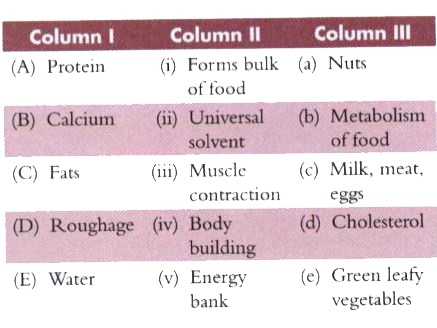Obesity leads to heart problems.
Step-by-Step Solution:
1. Understanding Obesity:
- Obesity is defined as the excessive intake of fat, which leads to an increase in the total body mass. This means that when a person consumes more fat than the recommended amount, they gain weight.
2. Effects of Excess Fat:
- The excess fat in the body is not just stored anywhere; it is specifically deposited in various parts of the body, including the walls of the arteries.
3. Impact on Arteries:
- The arteries are crucial for the circulation of blood throughout the body. When fat accumulates on the walls of the arteries, it can lead to a condition known as atherosclerosis, where the arteries become narrowed and hardened.
4. Consequences for Heart Health:
- The buildup of cholesterol and fat in the arteries increases the risk of heart problems. This can lead to serious conditions such as heart failure, where the heart cannot pump blood effectively.
5. Risk of Heart Attack:
- If the blood flow is significantly obstructed due to the buildup of fat, it can result in a heart attack, which is a medical emergency.
6. Preventive Measures:
- To avoid obesity and its associated risks, it is important to monitor and limit the intake of fats in the diet. Maintaining a balanced diet and a healthy lifestyle is essential for heart health.
- Obesity is defined as the excessive intake of fat, which leads to an increase in the total body mass. This means that when a person consumes more fat than the recommended amount, they gain weight.
- The excess fat in the body is not just stored anywhere; it is specifically deposited in various parts of the body, including the walls of the arteries.
- The arteries are crucial for the circulation of blood throughout the body. When fat accumulates on the walls of the arteries, it can lead to a condition known as atherosclerosis, where the arteries become narrowed and hardened.
- The buildup of cholesterol and fat in the arteries increases the risk of heart problems. This can lead to serious conditions such as heart failure, where the heart cannot pump blood effectively.
- If the blood flow is significantly obstructed due to the buildup of fat, it can result in a heart attack, which is a medical emergency.
- To avoid obesity and its associated risks, it is important to monitor and limit the intake of fats in the diet. Maintaining a balanced diet and a healthy lifestyle is essential for heart health.
Topper's Solved these Questions
- BOOK - PEARSON IIT JEE FOUNDATIONCHAPTER - HEALTH - OUR GREATEST WEALTHEXERCISE - ASSESSMENT TEST (Test 1)55videos
HEALTH - OUR GREATEST WEALTH
- BOOK - PEARSON IIT JEE FOUNDATIONCHAPTER - HEALTH - OUR GREATEST WEALTHEXERCISE - CROSSWORD1videos
HEALTH - OUR GREATEST WEALTH
- BOOK - PEARSON IIT JEE FOUNDATIONCHAPTER - HEALTH - OUR GREATEST WEALTHEXERCISE - TEST YOUR CONCEPTS (Very Short Answer Type Questions)39videos
HEALTH - OUR GREATEST WEALTH
- BOOK - PEARSON IIT JEE FOUNDATIONCHAPTER - ENVIRONMENT- AN ETERNAL GIFT TO MANKINDEXERCISE - CROSSWORD1videos
ENVIRONMENT- AN ETERNAL GIFT TO MANKIND
- BOOK - PEARSON IIT JEE FOUNDATIONCHAPTER - MOVEMENT-AN AMAZING ACTIVITYEXERCISE - ASSESSMENT TEST (TEST 1 (CROSSWORD))1videos
MOVEMENT-AN AMAZING ACTIVITY
Similar Questions
Match the following columns.
 03:26View Solution
03:26View Solution 04:10View Solution
04:10View Solution_______ are obtained from grasses, such as wheat, rice and maize.
01:31View Solution 01:36View Solution
01:36View Solution 02:05View Solution
02:05View SolutionWhich of the following leads to the risk of permanent heart damage?
01:54View SolutionObesity is a common health problem now a days which results due to the deposition of fat in various parts of the body. It may lead to other health problems such as diabetes, high blood pressure and heart attacks.
(i) Which tissue is resposible for storage of fat in the body?
(ii) How we can control obesity ?
(iii) What are the effects of morning walk and regular physical exercise on obesity.01:33View SolutionObesity leads to heart problems.
03:46View SolutionDeath of heart muscle tissues leads to ___________..
01:32View SolutionAssertion : Diet rich in unsaturated fat and obesity are the causes for heart disease. Reason : The proteins blocks the blood vessels.
06:59View Solutionवृक्क द्वारा शुद्ध किये गए रक्त को हृदय की ओर ले जाती है
02:05View SolutionBrown air leading to heart and lung problems is caused by
04:16View SolutionProlonged angina leads to death of the heart muscle resulting in................
02:46View SolutionOBESITY
04:25View Solutionমানব হৃৎপিণ্ডের তিনটি সমস্যা উল্লেখ করো ।
05:31View Solutionস্থূলত্বের ফলে দেহে কী কী সমস্যা হতে পারে?
04:06View Solution

